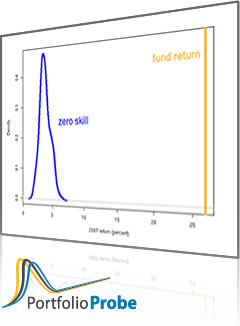Executive Summary
Simple but not simplistic explanations of several big ideas in economics.
Surprises
Thing 4
The washing machine has changed the world more than the internet has.
We are used to marvelling at the wonders of computing. However, we tend to forget that our lives would be extremely different without machines to do household tasks. If you lived in a third-world slum, getting an internet connection wouldn’t be your first priority.
Thing 9
We do not live in a post-industrial age.
We buy lots of industrial products, but high productivity has made them relatively cheap compared to services. Poor countries have lots of maids, rich countries have machines.
Thing 17
More education in itself is not going to make a country richer.
I found this to be a very enlightening chapter — that is, it has changed the way I think about education. A lot.
There are non-economic reasons to desire education, but in terms of economic development it is overrated. University graduates are very seldom hired because of the knowledge that they gained in university. They are hired because they are signalling that they have some combination of discipline, drive and intelligence that is lacking in those who haven’t graduated from university.
Schools are a sorting device. There can be inflation — if most everyone graduates from university, then the signalling has to move up to higher degrees.
The author is a Cambridge professor, so I doubt that he is particularly anti-education.
Free Markets
The main thrust of the book is to be an antidote to the commonly heard free market advocacy.
Thing 1
There is no such thing as a free market.
If there were anyone who really believed in free markets, then they would be lobbying for slave markets and child labor.
Markets always have rules. The rules merely become invisible to us when they are commonsense.
How ‘free’ a market is cannot be objectively defined. It is a political definition.
Thing 3
Most people in rich countries are paid more than they should be.
Restrictions on immigration are a key driver of wage levels. You can not be a true believer in free markets and want immigration control.
A bus driver in India needs to be much more skilled than a bus driver in Sweden. However the Swedish bus driver is paid many times more than the Indian driver.
The author does see value in some immigration control, but wants to strip away the illusion that it is not protectionism.
Thing 16
We are not smart enough to leave things to the market.
My favorite sentence of the book:
Is it possible to think about regulating the market when we are not even smart enough to leave it alone?
The author’s answer is yes. The argument is that regulators don’t have to be smarter than everyone else, they merely need to sufficiently simplify the choices of market participants.
In portfolio construction terms the regulators should be adding constraints that insure the process doesn’t go out of control.
Financial instruments need to be banned unless we fully understand their workings and their effects on the rest of the financial sector and, moreover, on the rest of the economy. … You may think I am too extreme. However, this is what we do all the time with other products — drugs, cars, electrical products, and many others. When a company invents a new drug, for example, it cannot be sold immediately. The effects of a drug, and the human body’s reaction to it, are complex. So the drug needs to be tested rigorously before we can be sure that it has enough beneficial effects that clearly overwhelm the side-effects and allow it to be sold. There is nothing exceptional about proposing to ascertain the safety of financial products before they can be sold.
Thing 22
Financial markets need to become less, not more, efficient.
… given the liquidity of their assets, the holders of financial assets are too quick to respond to change, which makes it difficult for real-sector companies to secure the ‘patient capital’ that they need for long-term development. The speed gap between the financial sector and the real sector needs to be reduced, which means that the financial market needs to be deliberately made less efficient.
Keen Stuff
There’s a concept called ‘Italian strike’ (in Italian it is sciopero bianco). This is an industrial action in which the workers follow the rules precisely. Apparently output is often reduced 30 to 50 percent.
On a completely different note:
There is a saying in Korea that even a monkey can fall from a tree.
That is, everyone makes mistakes.
Quibbles
The book questions a lot that is unthinkingly taken for granted. There is one thing it doesn’t question. Thing 24 should have been:
GDP is a terrible measure of economic quality.
The book talks about GDP a lot but never says anything about its shortcomings.
Video
The video is about 32 minutes long. Not a great speaker, but he reasonably clearly presents his ideas.

Pingback: Review of “23 Things They Don’t Tell You about Capitalism” by Ha-Joon Chang | Portfolio Probe | Generate random portfolios. Fund management software by Burns Statistics | Punkonomics (@DearBalak)